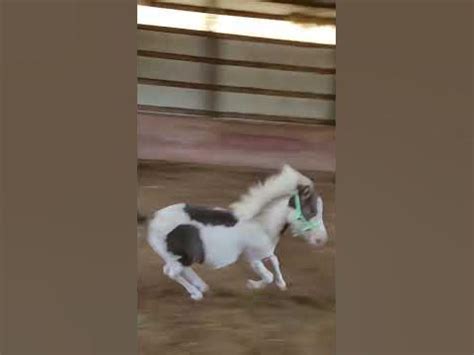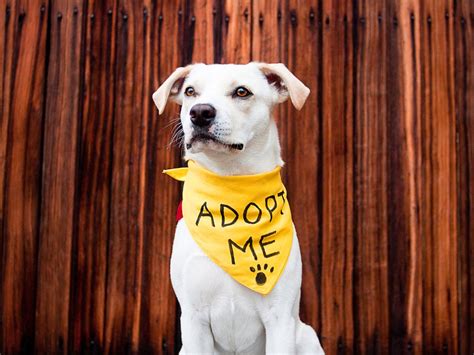
A miniature horse’s enthusiastic display of energy, known as “zoomies,” has captivated audiences online, showcasing the breed’s playful and spirited nature. The viral video highlights the sheer joy and exuberance of these diminutive equines as they gallop and frolic, reaffirming their endearing appeal beyond their small stature.
The video, circulating widely across social media platforms, features a miniature horse engaging in a burst of spontaneous activity characterized by rapid bursts of speed and playful antics. Experts note that such displays, often referred to as “zoomies” or scientifically as Frenetic Random Activity Periods (FRAPs), are common among young animals, including horses, and are typically triggered by a combination of pent-up energy and environmental stimuli. The incident underscores the importance of providing adequate space and enrichment activities for miniature horses to express their natural behaviors.
“They just need to buck and play and be silly,” explained one observer on social media, capturing the sentiments of many viewers who found the display thoroughly charming. The video’s popularity has also sparked conversations about responsible miniature horse ownership, emphasizing the need for specialized care, training, and socialization to ensure their well-being.
Miniature horses, despite their size, require similar attention to health and welfare as their full-sized counterparts, including regular veterinary check-ups, hoof care, and appropriate nutrition. Furthermore, behavioral enrichment strategies are crucial to prevent boredom and promote mental stimulation, particularly in environments where space may be limited.
The recent viral video serves as a reminder of the unique charm and inherent needs of miniature horses, encouraging potential owners to carefully consider the responsibilities associated with owning these captivating animals. The breed’s rise in popularity has also led to increased scrutiny of breeding practices and welfare standards, with advocates urging greater oversight to protect their health and well-being.
Miniature Horse Zoomies: An In-Depth Look
The viral phenomenon of a miniature horse exhibiting “zoomies” has not only captured hearts but also sparked a broader discussion about the breed’s behavior, care, and welfare. These bursts of energy, scientifically known as Frenetic Random Activity Periods (FRAPs), are characterized by short, intense periods of hyperactivity, often involving running, bucking, and playful antics. While seemingly random, these episodes serve essential functions for young animals, allowing them to release pent-up energy, develop motor skills, and engage with their environment.
Dr. Sarah Matthews, an equine behaviorist, explains, “FRAPs are a natural and healthy behavior in many young animals, including horses. They are a way for them to explore their surroundings, test their physical capabilities, and simply have fun. In miniature horses, these episodes can be particularly endearing due to their small size and playful nature.”
The recent viral video underscores the importance of understanding and accommodating these natural behaviors in miniature horses. While their small stature may lead some to underestimate their needs, these animals require ample space, opportunities for exercise, and mental stimulation to thrive. Confining them to small enclosures without adequate enrichment can lead to frustration, boredom, and the development of behavioral problems.
Responsible Miniature Horse Ownership
The increasing popularity of miniature horses as pets has raised concerns about responsible ownership and the potential for exploitation. While these animals can make delightful companions, prospective owners must be fully aware of their specific needs and the commitment required to provide them with a high quality of life.
One of the most critical aspects of responsible ownership is ensuring access to appropriate veterinary care. Miniature horses are prone to certain health conditions, including dental problems, obesity, and laminitis, a painful inflammation of the hoof. Regular veterinary check-ups, proper hoof care, and a balanced diet are essential to prevent these issues and maintain their overall health.
In addition to physical health, mental well-being is also crucial. Miniature horses are intelligent and social animals that require mental stimulation and interaction to prevent boredom and behavioral problems. Providing them with opportunities to graze, socialize with other horses or animals, and engage in training activities can help keep them happy and healthy.
“Miniature horses are not just small horses; they have unique needs and require specialized care,” emphasizes Dr. Emily Carter, a veterinarian specializing in equine medicine. “Potential owners should do their research, consult with experienced breeders or veterinarians, and be prepared to make a long-term commitment to their well-being.”
Breeding and Welfare Concerns
The growing demand for miniature horses has also led to concerns about breeding practices and the potential for unethical or irresponsible breeding. Some breeders may prioritize appearance over health, resulting in animals with genetic defects or health problems.
Dwarfism, a common trait in miniature horses, can be associated with various health issues, including skeletal abnormalities, respiratory problems, and shortened lifespans. Responsible breeders prioritize health and temperament in their breeding programs, carefully screening animals for genetic defects and avoiding breeding individuals with known health problems.
Furthermore, the welfare of miniature horses is often compromised in situations where they are bred or kept in substandard conditions. Overcrowding, inadequate nutrition, and lack of veterinary care can lead to health problems and suffering. Animal welfare organizations advocate for stricter regulations and oversight of miniature horse breeding and sales to protect their well-being.
“It is crucial to support responsible breeders who prioritize the health and welfare of their animals,” says Sarah Jones, an advocate for equine welfare. “Potential owners should visit the breeding facility, meet the parents, and ask detailed questions about the health and temperament of the horses before making a purchase.”
The Rise of Miniature Horses as Emotional Support Animals
In recent years, miniature horses have gained recognition as emotional support animals (ESAs), providing comfort and companionship to individuals with disabilities or mental health conditions. Their calm demeanor, gentle nature, and trainability make them well-suited for this role.
Unlike service animals, ESAs are not required to perform specific tasks or undergo specialized training. However, they must be prescribed by a licensed mental health professional and demonstrate that their presence provides therapeutic benefits to their owners.
While miniature horses can provide valuable emotional support, their use as ESAs is not without controversy. Some argue that their size and potential for disruptive behavior make them unsuitable for public spaces, while others raise concerns about the potential for abuse of the ESA designation.
Despite these concerns, many individuals have found miniature horses to be invaluable sources of comfort and support. Their ability to connect with humans on an emotional level, combined with their unique charm and playful nature, makes them ideal companions for those in need.
The Future of Miniature Horses
The future of miniature horses hinges on responsible ownership, ethical breeding practices, and a greater understanding of their unique needs. As their popularity continues to grow, it is essential to prioritize their health, welfare, and well-being.
Education and awareness are crucial to ensuring that potential owners are fully informed about the responsibilities associated with owning miniature horses. Providing them with access to accurate information about their care, training, and health can help prevent problems and promote responsible ownership.
Furthermore, stricter regulations and oversight of breeding practices are needed to protect miniature horses from exploitation and ensure that they are bred for health and temperament rather than solely for appearance.
By working together, breeders, owners, veterinarians, and animal welfare organizations can ensure that miniature horses continue to thrive and bring joy to people’s lives for generations to come. The viral video of the miniature horse “zoomies” serves as a reminder of their inherent charm and playful nature, but also underscores the importance of providing them with the care and attention they deserve.
The renewed attention on miniature horses can serve as a call to action, inspiring individuals and organizations to advocate for their welfare and promote responsible ownership. By fostering a deeper understanding and appreciation of these unique animals, we can ensure that they continue to have a positive impact on our lives and the lives of others.
Expanding on Miniature Horse Care and Needs:
Miniature horses, though small, possess a complex array of needs that prospective owners must understand before bringing one into their lives. These needs span dietary considerations, exercise requirements, shelter provisions, and proactive healthcare strategies. Failing to address these needs can result in health complications and behavioral issues.
Dietary Considerations:
Due to their compact size, miniature horses are susceptible to obesity, which in turn can lead to serious health problems such as laminitis, a debilitating hoof condition. A carefully managed diet is crucial to maintaining a healthy weight. This involves:
- Controlled Grazing: Access to pasture should be carefully monitored to prevent overeating. Grazing muzzles can be used to restrict grass intake.
- High-Fiber, Low-Carbohydrate Diet: The primary focus should be on providing high-quality hay that is low in sugar and starch.
- Limited Concentrates: Grain-based feeds (concentrates) should be offered sparingly, if at all, as they are high in calories and can contribute to weight gain.
- Regular Weight Monitoring: Owners should regularly monitor their miniature horse’s weight and body condition score to adjust the diet as needed.
- Fresh Water Access: Consistent access to clean, fresh water is crucial for hydration and overall health.
Exercise Requirements:
Despite their small size, miniature horses need regular exercise to maintain their physical and mental well-being. Exercise helps prevent obesity, strengthens muscles and bones, and provides mental stimulation. Ideal exercise regimens include:
- Daily Turnout: Providing ample space for free movement is essential. A large paddock or pasture allows the horse to graze, walk, and run.
- Hand-Walking: Walking the horse on a lead rope is a great way to provide exercise and bonding time.
- Light Driving: Miniature horses can be trained to pull carts or small vehicles, providing a more structured form of exercise.
- Playtime: Encouraging playful interaction, such as playing with toys or engaging in simple training exercises, can provide mental stimulation and physical activity.
Shelter Provisions:
Miniature horses require adequate shelter to protect them from the elements. A well-designed shelter provides protection from sun, rain, wind, and snow. Key considerations include:
- Stall or Run-In Shed: A three-sided run-in shed or a fully enclosed stall provides protection from the elements.
- Proper Ventilation: Adequate ventilation is essential to prevent the buildup of ammonia and other harmful gases in enclosed spaces.
- Dry Bedding: Providing a thick layer of dry bedding, such as straw or wood shavings, helps keep the horse warm and comfortable.
- Shade: Access to shade is crucial during hot weather to prevent overheating.
Proactive Healthcare Strategies:
Preventive healthcare is essential to maintaining the health and well-being of miniature horses. Regular veterinary check-ups, vaccinations, deworming, and hoof care are crucial.
- Regular Veterinary Check-Ups: Annual or bi-annual check-ups allow the veterinarian to detect and address health problems early.
- Vaccinations: Vaccinations protect against common equine diseases such as tetanus, West Nile virus, and equine influenza.
- Deworming: Regular deworming is essential to control internal parasites, which can cause weight loss, colic, and other health problems.
- Hoof Care: Regular trimming and balancing of the hooves are crucial to prevent lameness and other hoof problems.
- Dental Care: Miniature horses are prone to dental problems, such as overgrown teeth and malocclusion. Regular dental exams and floating (filing) of the teeth are necessary to maintain good oral health.
Behavioral Enrichment:
In addition to physical care, miniature horses require mental stimulation and enrichment to prevent boredom and behavioral problems.
- Social Interaction: Miniature horses are social animals and benefit from interacting with other horses or animals.
- Toys: Providing toys, such as balls, treat balls, or puzzle feeders, can help keep them entertained and mentally stimulated.
- Training: Training activities, such as clicker training or teaching simple tricks, can provide mental stimulation and strengthen the bond between horse and owner.
- Variety: Changing the environment regularly, such as moving toys or adding new objects to the paddock, can help prevent boredom.
By addressing these dietary, exercise, shelter, healthcare, and enrichment needs, owners can ensure that their miniature horses live long, healthy, and happy lives.
Addressing Common Misconceptions about Miniature Horses
Despite their growing popularity, several misconceptions surround miniature horses, often stemming from a lack of understanding about their specific needs and characteristics. Addressing these misconceptions is crucial for promoting responsible ownership and ensuring the well-being of these animals.
Misconception 1: Miniature Horses are low-maintenance pets.
Reality: Miniature horses are not low-maintenance pets. They require significant time, effort, and resources to provide proper care. Their needs are comparable to those of full-sized horses, including specialized veterinary care, hoof care, dental care, and a carefully managed diet.
Misconception 2: Miniature Horses are suitable for small properties with limited space.
Reality: While miniature horses are smaller than full-sized horses, they still require ample space for exercise and grazing. Confining them to small enclosures without adequate turnout can lead to boredom, frustration, and behavioral problems. A minimum of one acre per horse is generally recommended.
Misconception 3: Miniature Horses are just ponies.
Reality: Miniature horses are not simply small ponies. They are a distinct breed of horse that has been selectively bred for small size. While they share some characteristics with ponies, they have their own unique traits and conformation.
Misconception 4: Miniature Horses are always gentle and easy to handle.
Reality: Like all horses, miniature horses have individual personalities and temperaments. While many are gentle and friendly, some may be more challenging to handle. Proper training and socialization are essential to ensure that they are well-behaved and safe to interact with.
Misconception 5: Miniature Horses can be kept indoors like dogs or cats.
Reality: Miniature horses are not indoor pets. They are horses and require an outdoor environment with access to pasture, shelter, and fresh air. Keeping them indoors can lead to health problems and behavioral issues.
Misconception 6: Miniature Horses are cheap to keep.
Reality: Miniature horses are not cheap to keep. The costs associated with their care, including veterinary care, hoof care, dental care, feed, and shelter, can be substantial. Prospective owners should carefully consider the financial commitment before acquiring a miniature horse.
Misconception 7: Miniature Horses are suitable pets for young children.
Reality: While miniature horses can be gentle and affectionate, they are not always suitable pets for young children. Children may not have the physical strength or knowledge to handle them safely. Adult supervision is always required when children interact with miniature horses.
Misconception 8: Miniature Horses don’t need training.
Reality: Miniature horses benefit from training just like any other horse. Training helps them to become well-mannered, responsive, and safe to handle. Basic training should include leading, tying, grooming, and standing for the farrier and veterinarian.
Misconception 9: All miniature horse breeders are responsible and ethical.
Reality: Unfortunately, not all miniature horse breeders prioritize the health and welfare of their animals. Some may focus on breeding for profit, resulting in animals with genetic defects or health problems. It is essential to research breeders carefully and choose one who is committed to responsible breeding practices.
Misconception 10: Miniature horses don’t need hoof care.
Reality: Miniature horses require regular hoof care just like any other horse. Their hooves grow continuously and need to be trimmed and balanced by a qualified farrier every 6-8 weeks to prevent lameness and other hoof problems.
By debunking these common misconceptions, prospective owners can gain a more realistic understanding of the responsibilities associated with owning miniature horses. This will help ensure that they are prepared to provide the care and attention these animals need to thrive.
The Broader Impact of Viral Animal Videos
The viral success of the miniature horse zoomies video highlights a growing trend: the power of animal videos to capture widespread attention and spark conversations. While these videos often provide entertainment and amusement, they can also have a significant impact on animal welfare, conservation efforts, and public perception of different species.
Positive Impacts:
- Increased Awareness: Viral animal videos can raise awareness about important issues, such as animal welfare, conservation, and responsible pet ownership.
- Fundraising Opportunities: Videos featuring animals in need can inspire viewers to donate to animal shelters, rescue organizations, and conservation groups.
- Educational Opportunities: Viral videos can be used to educate the public about animal behavior, ecology, and the importance of biodiversity.
- Promoting Empathy: Seeing animals display emotions and behaviors that are relatable to humans can foster empathy and compassion towards other species.
- Inspiring Action: Viral videos can inspire people to take action to protect animals and their habitats, such as volunteering at a local animal shelter or supporting conservation initiatives.
Negative Impacts:
- Misrepresentation of Animal Behavior: Short, edited videos can sometimes misrepresent animal behavior, leading to misunderstandings and unrealistic expectations.
- Promotion of Unethical Practices: Some viral videos may feature animals being kept in substandard conditions or subjected to harmful practices.
- Encouraging Impulsive Pet Adoptions: Cute animal videos can lead to impulsive pet adoptions without proper consideration of the responsibilities involved.
- Exploitation of Animals for Entertainment: Some animal videos may exploit animals for entertainment purposes, subjecting them to stress, discomfort, or even harm.
- Spread of Misinformation: Viral videos can sometimes spread misinformation about animals, leading to misconceptions and harmful practices.
Ethical Considerations for Sharing Animal Videos:
Given the potential impacts of viral animal videos, it is important to consider the ethical implications before sharing them.
- Verify the Source: Ensure that the video comes from a reputable source and that the animals were treated ethically.
- Consider the Context: Provide context for the video and explain any relevant information about the animal’s behavior, ecology, or conservation status.
- Avoid Sharing Videos That Promote Harmful Practices: Do not share videos that depict animals being kept in substandard conditions, subjected to cruelty, or exploited for entertainment.
- Promote Responsible Pet Ownership: If the video features a pet, use it as an opportunity to educate others about responsible pet ownership practices.
- Support Conservation Efforts: If the video features a wild animal, use it as an opportunity to raise awareness about conservation efforts and support organizations that are working to protect their habitats.
By being mindful of the potential impacts of viral animal videos and considering the ethical implications before sharing them, we can help ensure that these videos are used to promote animal welfare, conservation, and a greater understanding of the natural world.
Frequently Asked Questions (FAQ) about Miniature Horses and Zoomies:
Q1: What exactly are “zoomies” and why do miniature horses do them?
A: “Zoomies,” also known as Frenetic Random Activity Periods (FRAPs), are short bursts of energy and hyperactivity characterized by running, bucking, and playful antics. Miniature horses, especially young ones, engage in zoomies to release pent-up energy, develop motor skills, and explore their environment. It’s a natural and healthy behavior.
Q2: Are miniature horses good pets for families with children?
A: Miniature horses can be good pets for families, but it depends on several factors. Children need adult supervision when interacting with them, as miniature horses still require proper handling and training. They’re not suitable as “toys” and require the same level of care and respect as any other animal. It’s best to research their needs and ensure that the family can provide proper care before bringing one home.
Q3: What are the specific health concerns associated with miniature horses?
A: Miniature horses are prone to several health issues, including dental problems (overbites, underbites, and malocclusion), obesity, laminitis (inflammation of the hooves), and genetic conditions like dwarfism which can cause skeletal abnormalities and respiratory issues. Regular veterinary check-ups and preventative care are crucial.
Q4: How much space do miniature horses need to live comfortably?
A: While smaller than regular horses, miniature horses still need space to roam and exercise. Ideally, they should have at least one acre of pasture per horse. Access to turnout and grazing is vital for their physical and mental well-being. Smaller spaces can lead to boredom and behavioral problems.
Q5: What kind of training do miniature horses need?
A: Miniature horses need basic training, just like any other horse. This includes leading, tying, grooming, and standing for the farrier and veterinarian. Positive reinforcement methods are effective. Training not only makes them easier to handle but also provides mental stimulation and strengthens the bond with their handlers. They can also be trained for driving (pulling carts).









